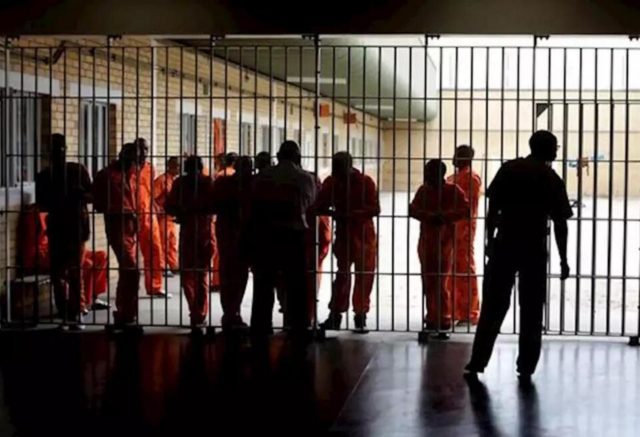This will be subject to strict Covid-19 protocols.
THE DEPARTMENT of Correctional Services (DCS) has announced that inmate visits in correctional centres and remand detention centres will now be allowed.
The department’s Singabakho Nxumalo, said on Monday that this followed the earlier pronouncement by President Cyril Ramaphosa that the country would move to Alert Level 2 from 18 August.
“Inmate visits to correctional centres and remand detention centres will be permitted under strict conditions, observing Covid-19 health protocols as well as Departmental Standard Operating Procedures,” Nxumalo said.
Visits will be limited to one non-contact visit per inmate per calendar month, and only one visitor per inmate at a time.
“Bookings must be pre-arranged at least 48 hours prior to the intended visit to ensure proper planning. As a result, no visits will be allowed without prior appointment.”
Only visitors with face masks and as per the approved name list will be allowed access.
Visitors must arrive at least 30 minutes before the commencement of the scheduled visit time. Inmates will be allowed to receive items as per their privilege group and as prescribed in the policy.
Nxumalo said further that visits would be permitted to take place between 9am and 3pm on visit days.
“In centres housing both sentenced and remand categories, and depending on the number of inmates, remand detainees may receive visits on Mondays, Tuesdays and Fridays, excluding public holidays. Sentenced offenders will be allowed visits on Wednesdays, Thursdays, weekends and public holidays.”
He stated that the department relied on members of the public to be honest during the screening process in order to prevent any potential infections and cross contamination.
“Those who have been in contact with Covid-19 positive cases must indicate this, as the information will allow our health care practitioners to conduct extensive screening, which includes the taking of vital signs. It is important to note that provision of false information is a criminal offence.”
Meanwhile, consultation visits between legal practitioners and inmates will be non-contact and will observe Covid-19 health protocols and operating procedures as determined by DCS.
“As prescribed, legal practitioners will be expected to make prior arrangements with the head of the centre and provide proof of their identity. On urgent matters, legal representatives and inmates may communicate telephonically after approval from the head of the centre has been obtained, and where circumstances and resources permit.”
Nxumalo added that as restrictions have been eased across the country, DCS was constantly monitoring the public health situation in each correctional centre, including community transmissions, and decisions would be accordingly taken, based on the risk levels.
“If, at any given time, there are new or suspected cases of Covid-19 in a facility or unforeseen circumstances at the premises, this could affect visitations. Those planning a visit should always confirm their visit with the relevant correctional centre before travelling.”
He added that the department’s top priority remained the health and safety of its officials, inmates and the public.
“We will therefore continue to monitor the situation and adjust safety measures and operating procedures where necessary.”








